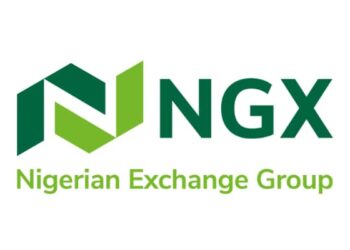Happy New Year 2023. The yuletide has witnessed a significant consumption rate across the country in the consumer goods sector. On a larger scale, sachet usage has dominated the retail industry in many parts of Africa but more significantly in Nigeria, where the population is high, and there is a huge demand for consumer goods. The level of plastic and sachet waste generation is extremely high, and we may have a big problem with that if this trend continues to increase without adequate regulation. Because sachet products, or single-serve packs as they are normally called in the fast-moving consumer goods (FMCG) industry, dominate the retail landscape, the surge in usage has been alarming. In colloquial terms, the model is referred to as “sachetisation” which is known to have kicked off in Nigeria in the ’90s with the making of smaller sachets of drinking water (pure water) and Cowbell powdered milk by Promasidor. Then the idea was necessitated by innovation to penetrate the larger low- or no-income populace. However, the idea was later met with intense and stiff competition. Today, the literature suggests that over a 60million units of pure water are consumed per day in Nigeria, along with loads of other sachet pack products. From take away food packs to carrier bags, drinks, cooking ingredients, and household cleaning products.
The sachet trend has continued to expand due to shrinking income levels, widespread hardship, and rising poverty amongst the populace. These undoubtedly have caused the growing adoption of sachet packs in the country recently. For companies, the tough operating environment, decrepit infrastructure, continuous inflation, porous borders, and waning bulk consumption have further heightened the need for the sachet model’s adoption. Both individuals and businesses are feeling the weight of the economic challenges, and over time, the disposable income of consumers continues to wane. Besides the consequences of the novel coronavirus (COVID-19) pandemic, the economy in recent times continued to worsen the situation. They are majorly eroding the purchasing power of many individuals, households, and even companies. The current economic situation has also made products and services more expensive nationwide. In fact, many manufacturing companies are witnessing reduced patronage of large items because not everyone can afford bulk purchase or regular packs, and consumers continue to look for cheaper alternatives. So, “sachetisation” is a business strategy and an alternative to engaging customers continually in this trying time. The idea is to make products affordable to consumers, particularly the majority of daily income earners who constitute a large chunk of the country’s population.
Many companies at this time of high inflation and economic uncertainty have resolved to adopt the “sachetisation” model to give some of the poorest people in Nigeria easy access to everyday household essentials and for continuous patronage within the consumer goods space. Also, for the companies this time, it is a way to increase sales among the customers who cannot afford to buy in larger quantities. Even though the sachet model saves wastage with portion control, it requires minimum packaging materials, less storage, low shipping and transportation cost, and most importantly, it is pocket friendly to the end-users. However, the painful truth and disclosure are that this trend is an indication of unsustainable consumption, income inequality, unaffordability, and the wide gap between the haves and have-nots, the dwindling economy, and a high level of poverty in the country. Supportably, the National Bureau of Statistics (NBS) in the “2019 Poverty and Inequality in Nigeria” report, highlights that 40 per cent of the total population, or almost 83 million people, live below the country’s poverty line. This figure even appears underestimated, in my opinion, due to a lack of data on the extremely huge informal sector of the country. However, these sachet products give the poor in the country access to everyday household essentials but compromise the sustainable consumption and the environment.
From observation, hardly is there any market-leading FMCG company in Nigeria has not manufactured a single-serve pack (sachet-packed product) to capture the poor consumers. To buttress the adoption of this model, the various operators in the open markets in the country unknowingly practice the sachet model on perishables, vegetables, and foodstuffs freely. All due to economic reasons and the waning purchasing power of the consumers. The regular essential consumables that are noticeable in sachet are milk, detergent, cooking oil, cereal, margarine, liquor, pepper mix (pepper, tomatoes and onions), toothpaste, sugar, tomato sauce, shampoo, cornflakes, seasoning/spices, biscuits, dishwashing liquid, shaving sticks, cereals, bleach, Lipton sachet with just two tea bags, diaper sachet with just two units, disinfectant and energy drink amongst others.
From the sampled opinion, this sachet trend is on the increase in a bid for companies to continue to increase market share, increase market penetration, and remain competitive. The important thing is that the trend is now becoming increasingly popular, and even choice brands are included in the growing wave. This trend encourages quick sell and increases competitiveness in consumer goods, where affordability is a big issue. Importantly, companies need to note that the population of the poor in the country continues to grow, indicating that those unwilling to flow with the sachet trend may be at risk of running out of business. Considering the country’s economic griefs, the trend is beneficial regarding patronage, sales, and business continuity. The sachet model is undoubtedly on the increase in the country, and it is currently a winning strategy to sell what a large percentage of the population can afford.
All said the points raised above are not to completely justify “sachetisation” as a business strategy but also to implore the companies and government to promote measures to improve sustainable consumption, clean production, and circular economy to reduce multidimensional poverty- which may include food security, housing, health, education, and security which directly impact the wellbeing of the populace. The big issue is that most plastic sachets are not currently being recycled and reused. Therefore, government sustainable development strategies and policies need to be heightened to involve waste management, environmental management, pollution, and recycling and socio-economic plans need to be in place to promote recycling and save the environment. This should be a priority now. Therefore, key policies and measures to encourage proper waste management and recycling in the country should also be considered to avoid huge environmental pollution.
In conclusion, observation indicates “sachetisation” is now more like a necessity than an option in the country due to increased deprivation in myriad aspects of life. The country’s telecommunications and some real estate companies are exploring the sachet model with various smart (sachet) pack products with daily payment options. Above all, it is not even out of place to mention that just like these companies and the Fast-moving Consumer Goods (FMCG), the financial sector- banking, insurance, and investment management companies and even the Cable TV operators can ‘sachetised’ to make services more accessible and affordable for the masses. However, leveraging innovation, sustainable production, and technology will be of great significance to achieve this. Good luck!
How may you obtain advice or further information on the article?





